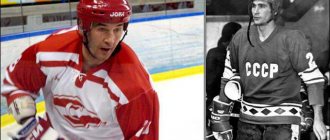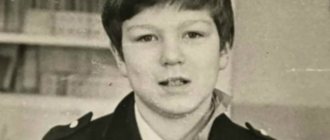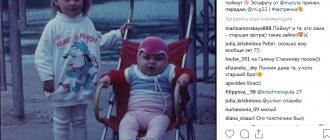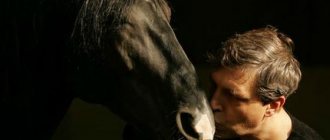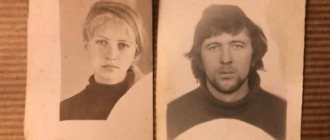Invitation to the national team
According to Alexander Gomelsky, Belov, possessing a very high and powerful jump, always ended up in the right place on time. His jump was truly amazing. Sometimes it seemed that Belov was simply hanging in the air. And when he stood in a defensive stance, with his legs slightly bent and his elbows raised, there was simply no room left for his opponents under the shield. He didn't let anyone near the shield. In addition, Alexander Aleksandrovich Belov had a good feel for the game from a young age and excelled in tactics. All this allowed him to compete with opponents whose height was 10-15 cm larger.
It was Gomelsky who invited the young basketball player to the USSR national team. At that time, Alexander was only 17 years old. A year later, in 1969, the USSR men's basketball team played at the European championship in Naples. The 18-year-old was the main discovery of this season. At that time, he had played in the major leagues for three seasons, so he had enough experience not only to compete with seasoned players, but also to take on a key role in the team if necessary for the game.
The path to basketball
Alexander was born on November 9, 1951 in the city of Leningrad. He got into basketball in a very surprising way. The young coach at that time, Vladimir Petrovich Kondrashin, went to schools and looked for talented children there. One day he met ten-year-old Alexander Belov. The coach immediately saw great potential in him. To convince Alexander to try himself in basketball, Vladimir Petrovich had to work hard. Surprisingly, Kondrashin was actually Alexander’s only coach during his entire career.
Feedback from a colleague
Alexander’s teammate and namesake Sergei Belov, in his book “Moving Forward,” did not miss the opportunity to pay tribute to the hero of our conversation today. According to Sergei, given his height, Alexander was not a center, but a power forward, nevertheless, he shone in the position of number five. Defense, as Sergei notes, is the basis of basketball, and Alexander frankly succeeded in it. He was perfectly prepared and took on the most important tasks of the team. According to a colleague, it was Vladimir Petrovich Kondrashin who managed to instill in Belov a love of playing defense, which requires a special philosophy.
The fact is that the lion's share of players try to score more into the hoop in order to be noticed, while defense and the ability to give the necessary pass to the “front line” is an equally important task, which not everyone can appreciate to the proper extent. Alexander Belov is a basketball player with a capital B, if only because he is one of the few who knew how to enjoy playing on defense.
The beginning of the biography of Sergei Belov
Basketball did not immediately enter the life of a native of the small village of Nashchokovo (Tomsk region). The young Siberian was born in 1944, on January 23. His parents, evacuated from Leningrad, bore on their shoulders all the hardships of the war. The father, not seeing the birth of his son, was mobilized to the front, returning only in 1947. An engineer by training, he was a wonderful ski racer, champion of Leningrad. His son Sergei also inherited his love for sports.
The family moved to Tomsk, where the boy went to 1st grade. Since childhood, he enjoyed playing football, skiing, and participating in athletics. And he even became the author of the high jump record among juniors in the region. But he was not included in the region’s track and field team, so Sergei Belov concentrated on basketball, which he became interested in in the 5th grade.
Change of national coach
At the 1970 World Championships, the USSR team was only able to win third place, disappointingly losing to Brazil (64:66) and America (72:75). After the disastrous championship, the same Kondrashin became the coach of the national team. During his seven years of coaching, he brought the team several brilliant triumphs. The main one was the legendary event for Soviet basketball - the team’s victory at the Olympic Games in Munich.
As a coach
The great player ended his sports career in the same 1980 to become an equally great mentor. At first he headed his native CSKA, but in 1982 he had to say goodbye to the team. Having fallen into disgrace with the state security authorities due to the arrival of a Brazilian friend, Belov was banned from traveling abroad.
Only in 1988 was he able to return to his native team. The 1989/1990 season remained with CSKA, after which the coach left the country to work with the Italian club Cassino. Three years later, after the collapse of the USSR, Sergei Belov will return to the capital to lead the RBF and the Russian national team.
Under his leadership, the country's main team will bring silver medals from the 1994 and 1998 World Championships. In the first case, losing primacy to the United States, and in the second, to Yugoslavia. In 1997, Russia will become the bronze medalist of the European Championship.
At the age of 55, the coach will leave the national team in order to create a team in the Perm region that is not inferior in its skill to CSKA. The finest hour for Ural Great will happen in 2000-2003. Twice the Permians will win the Russian championship and twice will drop just one step lower, while simultaneously winning the NEBL - Northern European League.
Olympics
Preparations for the Munich Olympic Games were very serious for the USSR national basketball team. After all, there the team had to meet with the strongest opponent - the US team, which had not known defeat at the Olympic Games since 1936. Despite the abundance of good players in our team, only the two-meter Belov could powerfully defend his shield against the American professionals.
As predicted, the US and USSR teams made it to the Olympic finals. This legendary match, when Team America lost its gold to the Union, will be remembered for a long time. Ivan Edeshko's pass and Alexander Belov's shot around the hoop, which marked the fiasco of the Americans and the incredible success of Soviet basketball players, went down in history especially vividly.
Widows of famous basketball players spoke out against the film “Moving Up”
One of the main roles in the film was played by Vladimir Mashkov // Photo: still from the film
The film "Moving Up" is released in wide release today, December 28. The main actions in the film revolve around the participation of the USSR national basketball team at the 1972 Olympics in Munich. The main characters of those competitions (and therefore the main characters of the film) were Olympic champion Alexander Belov and Honored Coach of the USSR Evgeny Kondrashin.
In the early 70s, the great basketball coach Kondrashin, who had just headed the national team, actually accomplished the impossible. At the Munich Olympics, the USSR team under his leadership snatched victory from the USA for the first time in 36 years. In the final match. During the last three seconds.
The second hero, basketball player Alexander Belov, went down in the history of world sports with his victorious shot that decided the outcome of the match at the last second of that very game with the Americans. It was after that hit that the final result was displayed on the scoreboard - 51:50 in favor of the Soviet team...
The leading roles in “Moving Up” were played by Vladimir Mashkov, Ivan Kolesnikov, Andrei Smolyakov, Sergei Garmash, Marat Basharov, Victoria Tolstoganova and many other famous actors.
However, the widows of famous basketball players Alexander Ovchinnikov (Belova) and Evgeny Kondrashin came out categorically against the film. They didn’t see the film themselves—they just read the script. According to women, the film tells a very distorted story about the lives of famous athletes.
According to Ovchinnikova, the film's script does not correspond to reality. The same Belov in the film is presented as a terminally ill person already during the ’72 Olympics. In addition, according to the plot, the athletes go to America, where they manage to sell caviar brought from the USSR - in an area like Harlem. There they also play with a team of African-American basketball players. As a result, ours are defeated, go to a bar and get drunk.
“Sasha in 1972 was a basketball genius, young, very promising, something could be filmed about him, something beautiful! Sasha didn’t live long enough. And here, already in 1972, he was made mortally ill. This is very unpleasant. Personally, I feel a lot of pain for everything about this. They show his personal life, I was against them making up something and talking about him. To which they answered: he supposedly had many girls before you, you are not the only one. To be honest, I want to cry without even watching this film. Let the TriTe studio (owned by Nikita Mikhalkov - Ed.) make a movie about Mikhalkov's family, where his relatives will drink, be terminally ill, behave inappropriately, sleep with anyone. Let them film it and say that this is a work of fiction,” Ovchinnikova said.
Alexander Belov lived 26 years, 10 months and 24 days. The famous basketball player died of heart sarcoma. // Photo: https://sportlegend.kulichki.net/basketball/belov.htm
According to Alexandra Pavlovna, she asked the filmmakers to remove at least some moments from the script. However, she was refused, citing that the film would turn out bad. “Now it’s a good film, I’m very happy for them, but we want to cry,” added the widow of the basketball player Belov.
The wife of the late coach Kondrashin believes that the authors of the script have never been to a basketball match and have no idea how Vladimir Petrovich behaved at the game. According to Evgenia Vyacheslavovna, there is a moment in the film when Kondrashin lost consciousness during an allegedly fixed match with Cuba, then came to his senses and asked who won. In addition, the film contains the image of the coach’s son, a wheelchair user, Yuri. His father is trying to speculate in currency to finance Yura's operation. According to the coach's widow, their child did not undergo surgery. By the end of the picture, the young man begins to walk. Although Yuri has been confined to a wheelchair all his life - he has cerebral palsy.
Kondrashina also told reporters that she would sue if the filmmakers did not remove from the film the episode about fraud on the part of her relative. The producers promised to change the script, but, according to the widow of the famous Soviet coach, all the changes were minor. As a result, the studio had to change the hero's name to avoid responsibility. Now he is listed as Vladimir Garanzhin (he is played by Vladimir Mashkov).
“This is such nonsense. The only thing that coincides with reality there is the victory in Munich. Everything else is not the same. And they write about us that we started the lawsuits because of money. Yes, we ourselves would probably pay money so that this would not appear in the world,” said Evgenia Kondrashina in an interview with Regnum.
Vladimir Petrovich Kondrashin had an inner instinct. The Soviet coach noticed how basketball was played in America. // Photo: https://www.sport-express.ru/basketball/reviews/822205/
It is worth noting that the filmmakers consulted with basketball players who once played and trained in the legendary team with Alexander Belov and Vladimir Kondrashin.
“At first, I refused the request to help on the set of the film. I didn’t really understand what would happen there and how. For the first time in my life, I read the full script of the film, and you need to be able to do this. But then I found out that the movie would be about human destinies, about the time in which we lived, about the psychology of those guys who played and defended the honor of our country. And he agreed. I agreed to clarify some points from the book by Sergei Belov (Alexander’s namesake, he also played in the legendary team. - Ed.). When I saw with my own eyes how the filming was going, I realized that this was a very necessary and real thing. It turned out to be a movie for the people, for the audience, about life and about basketball. Which can inspire parents. After leaving the hall, they will go to send their children to sports sections,” says Ivan Edeshko, the 1972 Olympic champion.
Another basketball player Alzhan Zharmukhamedov also speaks positively about the “Moving Up” tape.
“I watched Legend No. 17 before. And I really liked how people perceived the picture, what a feeling of pride in their sport, in their country, that awoke in people. I thought that our victory in that match was also a noticeable phenomenon. A movie about it will help young people learn important pages of our history and will ensure an influx into our sport, which has not been very encouraging lately. It was clear that this would not be a documentary story, but an artistic one, with documentary elements,” says Zharmukhamedov.
USSR national team 1972. Far right in the bottom row is Sergei Belov, based on whose book the film was based. Third from the right in the top row is the legendary basketball player Alexander Belov // Photo: Vyacheslav Un Da-sina / TASS Photo Chronicle
Playing in the yard with African Americans // Photo: still from the film
The film about a team of basketball players is not the first film about Soviet athletes who achieved great victories. Four years ago, as already mentioned, the film “Legend No. 17” was released on Russian screens. The film is based on real events and tells about the life of the famous Soviet hockey player Valery Kharlamov and the first match of the 1972 USSR-Canada Super Series. The role of the legendary hockey player was played by Danila Kozlovsky. In Russian film distribution, the film “Legend No. 17” collected almost 30 million dollars at a cost of 10.
Let us remember that the relatives of the hockey players reacted favorably to the film adaptation. Moreover, the script for “Upward Movement” was written by playwright Nikolai Kulikov, who was a co-author of the film “Legend No. 17.” And she was involved in cinematography for both films.
In addition, last year the film “Champions: Faster” was released in Russian cinemas. Higher. Stronger". The film consisted of three stories based on real facts from the lives of athletes: wrestler Alexander Karelin, gymnast Svetlana Khorkina and swimmer Alexander Popov. The film is dedicated to the movement of champions to gold medals at the Olympic Games, after which the athletes became real heroes of the country.
The filmmakers tried to find actors similar to the Soviet champions // Photo: still from the film
The moment that determined victory at the Olympics
The denouement of the great match was extremely tense and interesting, so it is worth remembering it in detail.
Throughout the entire bout, the Soviet basketball players led the score by a small margin. However, at the end of the second half, the Americans closed in on them. 10 seconds before the end of the match the score was 48:49. M. Paulauskas gave a pass to Belov, who was under the enemy’s shield. Alexander missed, but picked up the ball. For the team to win, all he had to do was hold the ball until the siren. But Belov did not have the opportunity to control the ball, so he passed the ball to Z. Sakandelidze. The latter was tightly held by his opponents, and he had to commit a foul. As a result, the US team was entitled to 2 free throws, both of which were perfectly executed.
A few seconds before the end of the game, the Soviet team had virtually no hope of winning. But when Belov looked at the coach and saw his calm gaze, the basketball player realized that all was not lost. After that, the Soviet team threw the ball into the game twice, and both times the siren sounded early. The third time the ball went to Ivan Edeshko, who gave an excellent pass to Alexander Belov, who was in the center of the field at that moment. Having outwitted the Americans and broken through to the basket, Belov made a very careful and accurate throw. The ball ended up in the ring, and the final siren sounded. So the USSR became the champion of the Olympic Games in basketball. Sergei Belov in his book calls this moment “the highest justice” for the team’s efforts on the path to triumph.
In general, at the Olympics, Alexander Belov, a basketball player who knew a lot about proper defense, performed very effectively - an average of 14.4 points and 5 rebounds per competition.
Court
Yuri Vladimirovich’s mother, together with the wife of Vladimir’s colleague, the widow of Alexander Belov, filed a lawsuit against the creators of the film “Moving Up.” The family of the Soviet coach stated in court that they never collected money for Yura for the operation and did not perform it on him. Kondrashin's widow stated that this film discredits the memory of her husband and his colleagues. The main thing is what the widow is trying to achieve so that fiction does not become truth for the viewer. The widow is not concerned about the financial issue. The desire of her and her son is that the film be removed from distribution.
The wife of the legendary athlete filed a lawsuit against the creators of the film “Moving Up!”
Yuri Kondrashin still hopes that his father’s services to the fatherland will not be forgotten. That he and his mother will gain freedom of movement and will not remain imprisoned in a multi-story building that does not have basic conditions for people with disabilities.
Further development
After the Olympics, Belov became famous throughout the world and received an invitation to the NBA, but the man preferred to bring titles to his club and the national team of his native country. Thanks to Belov and Kondrashin’s coaching, they won more than one victory. Alexander Aleksandrovich Belov was the core of the team, and not just a leader. He was the main creator of all the victories of the above-mentioned teams.
The Olympic Games in Montreal brought only bronze to the USSR national team. But Belov’s personal indicators increased. He became the team's leading scorer, averaging 15.7 points per game. The world didn’t know many players of Alexander’s level. He didn't care who he played with or against. Thanks to his gaming intelligence and technical talent, the basketball player could find a common language with anyone. The man was also very artistic on set. He bathed in the love of the fans and drew strength from it for new achievements.
Love
A bright moment in Belov’s life was his acquaintance with Alexandra Ovchinnikova, who was a successful basketball player. Bright feelings arose between them, which were not hampered by constant training at different bases. According to Alexandra, Kondrashin was very happy about this union and even pushed Belov to quickly consolidate his feelings through marriage. The girl was very modest and positive, so she perfectly compensated for the explosive temper of our hero. In April 1977, the couple legalized their union.
Premature retirement from sports
At the beginning of 1977, Spartak went to a game in Italy. During customs inspection, a bag with prohibited goods was discovered, which was attributed to Belov. A huge scandal broke out in the press world about this. Alexander was stripped of all his titles and suspended from basketball.
Soon, Alexander Belov, a basketball player for whom the word “honor” was not an empty set of sounds, refused the offer to play for CSKA. But it was within the power of A. Ya. Gomelsky to return all the titles of the famous athlete. But he did not agree, because he felt his duty to the team that made him a star.
At the end of 1977, the man was again allowed to play for Spartak, and in August of the following year for the national team. But the basketball player was no longer able to go to the World Championship, since his physical condition had deteriorated sharply by that time. Before training, he felt very unwell and went to the hospital.
Treatment
The great athlete was treated in several hospitals in Leningrad, but the doctors never came to an accurate diagnosis. Kondrashin brought him foreign medicines, but they also did not help. As a result, the greatest Soviet basketball player, Alexander Belov, died on October 3, 1978. The cause of death, as it turned out later, was heart disease. Many thought that it was precisely because of active sports that the man’s condition worsened, but the doctors unequivocally stated that thanks to basketball, Alexander Belov, without realizing it, extended his life. And when he took a break, heart sarcoma still overcame him.
This was the end of the biography of Alexander Belov, who passed away just a month short of his 27th birthday, but his memory remains for a long time.
Moscow journalist A. Pinchuk, whom Vladimir Kondrashin considered the best basketball observer, once noticed that human life is measured not only by years, but also by achievements. It turns out that Alexander did not live such a short life, because he managed to do as much in 26 as many people do not manage to do in 80.
Health problems
There would probably be many more merits, but, unfortunately, talented people leave early. Belov had health difficulties from a young age. Periodically, he complained to the coach about chest pain. But since 1977, Alexander Belov began to have significant problems. The reason for the deterioration of the athlete’s well-being was a scandal at customs.
As a result of a customs inspection, icons that were prohibited for export from the country were found in Belov’s possession, and the leadership decided to deprive the athlete of honorary titles and remove him from the national team. This was shocking news.
The exemplary execution, which the state apparatus decided to carry out as a warning to other athletes who are actively engaged in petty smuggling, aroused media attention and a mixed reaction from the public. Exclusion from basketball greatly crippled Alexander. He started drinking.
After some time, it became known that the athlete was set up on purpose. Knowing Alexander's kindness, he was asked to take a bag with illegal luggage. The provocateur was sure he could not refuse.
It so happened that it was this bag that customs control asked to open. One of the team members, who dreamed of taking a place in the top five, decided to eliminate Belov. There is an opinion that it was he who led the customs control officers to Alexander.
There is another version. It is known that they wanted to lure Belov to CSKA. The athlete did not give up, he was devoted to the team and club where his career began. The story with the export of contraband was played out specifically to urgently suggest that the basketball player move to Moscow, this is exactly the recommendation he received from the person who handed him the ill-fated bag. The athlete was promised restoration of his titles and permission to train, but Alexander refused.
At the beginning of 1978, the sports department, having failed to achieve results, lifted the sanctions and allowed the athlete to play.
Belov was invited to the national team training camp, and he happily agreed. In the Latvian city of Tulsa, he became ill during training, doctors examined him and diagnosed him with poisoning. As a result of therapy, the heart problems worsened, and the athlete was forced to return to his hometown.
In Leningrad, a terrible diagnosis was made - cardiac sarcoma, which was also declared the official cause of Belov's death. A very rare disease, no more than one case in a million. Doctors call it the disease of geniuses.
Despite the help of the trainer and the efforts of the best doctors, Alexander understood that he was dying. He wrote a letter, which he gave to one of the team members. The envelope was opened after the death of the athlete.
In his message, Belov asked to be buried next to his father and to give his gold medal to Kondrashin, the only coach.
Death overtook the great athlete in October 1978. His grave is located at the Northern Cemetery in Leningrad.
Achievements of A. Belov
- Honored Master of Sports.
- Gold at the 1972 Olympics
- Bronze at the 1976 Olympics
- Gold at the 1974 World Championships
- Bronze at the 1970 World Championships
- Gold at the 1969 World Championships, as well as 1971.
- Silver at the 1975 European Championship
- Two-time winner of the Cup Winners' Cup in 1973 and 1975.
- Gold at the USSR Championship in 1970 and 1971.
- Silver at the USSR Championship 1972-1974,1976,1978.
- Bronze of the USSR Championship 1969
- Silver at the Spartakiad of the Peoples of the USSR 1975
- Gold at the 1970 World Universiade
- Nations Cup 1974
- Intercontinental Cup 1975
- Gold at the European Junior Championships in 1968 and 1970.
- Inducted into the FIBA Hall of Fame in 2007
- Order of the Badge of Honor.
Alexander Belov is a basketball player from God. He was a favorite of the fans and caused them true delight. But for every athlete, it is the love of the viewer that is most valuable. Medals, participation in international tournaments, compliments from experts - this is very nice, but still secondary. And in the first place is always the recognition of those for whom you play. And Alexander Alexandrovich Belov played his game with a bang!
